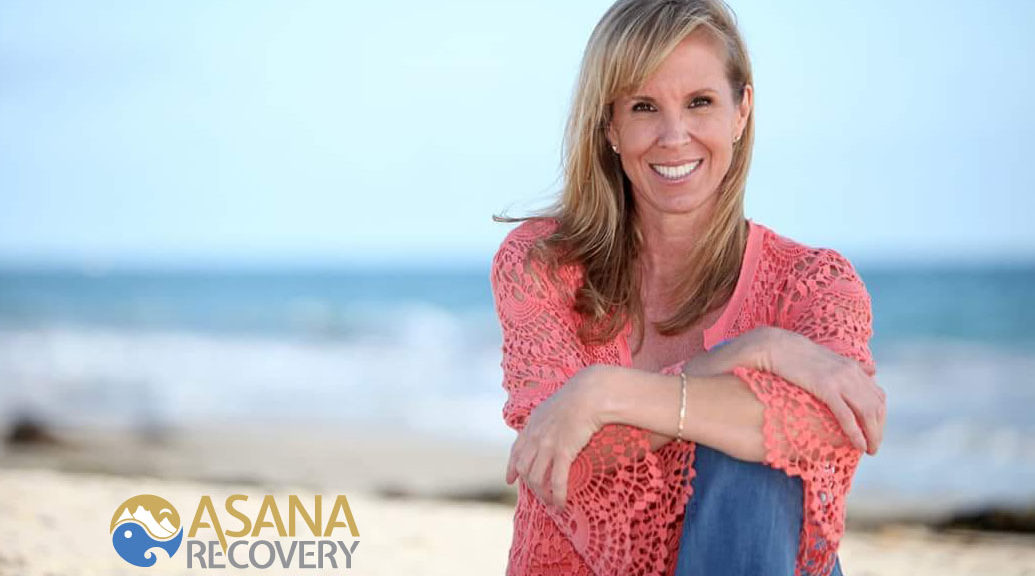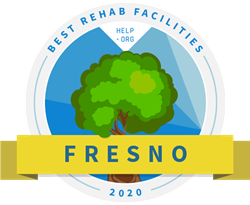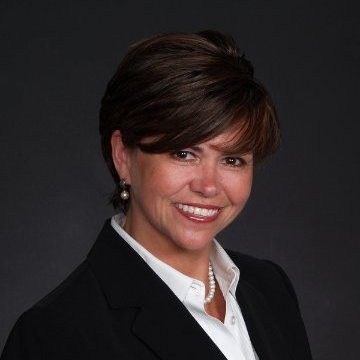
The Effects of COVID-19 on Mental Health
TAMPA, Fla. (PRWEB)
May 21, 2020
The Rise of Mental Health and Substance Abuse During COVID-19
Entering into this new, redefined normal, there have been a lot of complications and adjustments, needless to say, more complications. With rising deaths, more confirmed cases every day, and unemployment rates rising to the highest level since the great depression it can be hard to escape and find peace. Adding to these persistent stressors are quarantine orders. Stressors and lack of socialization can lead to significant adverse effects- those most affected being individuals with mental health and/or substance use disorders (addiction).
The mental health and addiction community populations are currently reeling from the impact of covid due to primary and secondary effects imposed by the virus’s destruction.
This pandemic has been a roller coaster of emotions for most. You have most likely felt some form of loneliness, stress, anxiety, boredom, depression, or grief. With such an unprecedented event, many individuals are feeling overwhelmed. If you too feel this way, you are not alone.
The Effects of COVID-19 You Might Not See
No matter who you are, in some form or another, you are feeling the effects of this pandemic. You may be personally affected by the virus or you might be struggling trying to protect your loved ones. It is very likely that you could be one of the 22 million Americans recently unemployed and being unemployed during a pandemic leads to its own problems. Millions of people have been struggling every day to apply for financial aid, some are still waiting. The fear of not knowing how to pay for rent, a mortgage, or even the next meal is one of the most mentally taxing problems a person can face.
For people lucky enough to still work, they may be working in unsafe and vulnerable settings. Others might be adjusting to a new work environment from their home while taking care of their family full-time. This means parents may now have to navigate teaching their children while also managing their own careers. There begins to emerge specific anxieties and complications to life in isolation. For those that do have a family at home, isolation could lead to familial disputes causing strife.
If the impacts of health concerns, employment, finances, and family confusion weren’t enough, many of the typical options individuals turn to in time of need are unavailable. People with pre-existing mental health disorders and individuals in recovery turn to their support system in times of stress to help them manage their psychological health. With social distancing measures, these vital sources of comfort are diminishing. This increase in stressors and a decrease in resources form a dangerous equation for our future.
COVID-19 Impact on Mental Health
Life in quarantine has led most of us to feel a little stir-crazy. We can’t socialize, and being social creatures, this can cause significant problems. Whether or not you have a pre-existing condition, if you don’t find ways to keep yourself occupied, it can quickly turn into depression or severe anxiety. For individuals with a pre-existing condition, the pandemic can worsen their condition.
For example, natural disasters in the past have been shown to impose negative psychological impacts on those affected. These can include long periods of grief, loss, stress and anxiety proceeding the events.[1]
During the SARS outbreak, one study showed that almost half of the survivors suffered from PTSD. 25% still suffered from this trauma 30 months later.[2] Those psychological effects were not specific to those infected with SARS. Individuals working in high-risk areas, in quarantine, or those close to someone who contracted the disease were 2-4 times more likely to experience severe PTSD than those with limited exposure.[3]
Outside of PTSD, a pandemic can have significant impacts on other mental illnesses. For those who suffer from OCD, the threat of disease and germs can heighten obsessions and compulsions. Times of high stress can also lead to relapse with chronic anxiety sufferers. One study even showed that loneliness and social isolation are twice as harmful to our physical and mental health as obesity.[4]
Experts believe mental health cases will increase dramatically over the next few months. This increase in psychological disorders will be followed by an increase in substance abuse cases as well. Pre-existing conditions or not, using drugs or drinking alcohol is a popular way people cope with these sudden and increasing life stressors.
Rise of Substance Use Disorders During COVID-19
You might think that due to restaurants and bars closing, alcohol consumption would slow but in fact, alcohol consumption has increased. Alcohol and marijuana dispensaries around the nation have been labeled as “essential” businesses. In March, when stay at home orders were popular across the nation, alcohol sales rose by 55%.
There are wide ranging anecdotal reports of vastly increased rates of relapse from a variety of sources. AA groups, university counseling centers, treatment centers, and nonprofits working with substance abuse populations show massive increases in relapses. Alexander Ronzino, CEO of Coalition Recovery shared, “Our nation is facing an unprecedented crisis due to COVID-19 – the impact on mental health and substance use disorders will be far reaching and the aftermath of this is something our healthcare system will be addressing long after some sense of normalcy returns.”
A 2018 national survey on drug use and health by the federal Substance Abuse and Mental Health Services Administration, an arm of the U.S. Department of Health and Human Services, found that 14.8 million Americans had alcohol use disorders while another 8.1 million were battling illicit drug use disorders. Experts say these numbers are to grow dramatically in the coming months due to skyrocketing unemployment and ever-increasing death rates.
Economic dislocation, job loss, and fear of death by disease are triggers for substance use, which heightens the risk of other issues like suicide and domestic violence. Due to these reasons, substance abuse treatment centers are seeing a spike in relapse rates across the country.
Those vulnerable to developing a substance use disorder are those with underlying mental health conditions, those in active recovery, those experiencing traumatic life changes, and those without the ability to cope and handle stress in positive and effective ways.
Unavailable Treatment for Addiction and Mental Health
With both inflated life stressors and relapse rates, it is safe to say we will begin to see a large spike in addiction rates. Sadly, due to the wake of the virus, access to resources diminished as the number of mental health and addiction treatment providers decreased. During the moments when these services are needed most, many outpatient centers closed or presented higher barriers to entry due to public health concerns. It can be hard enough to make the decision to find help even with the robust resources and support out there. The combination of increased addiction cases and decreased resources represent a major issue for our society to address.
The human impacts of addiction are undeniable, but these repercussions hurt everyone, directly and indirectly. According to the International Narcotics Control Board, drug and alcohol abuse accounts for half of all crimes and induces a financial burden to society of over $100 billion per year for their effects on crime alone. These include damaged or stolen property and emergency services.
Fortunately, some behavioral health and addiction treatment centers are still running. Whether you are looking for medical detox, addiction counseling, or a rehab that includes both; these facilities should be employing strict health screening before admission to minimize risks and maintain the safety of their present census. Some precautions centers are utilizing are:
Clustering clients into small “pods” with distance between each other to prevent exposure
Having non-essential staff work remotely
Utilize tele-health when appropriate
Regularly disinfecting frequently touched surfaces and practicing good hand hygiene.
According to Dr. Hannah Snyder, an addiction medicine specialist at Zuckerberg San Francisco General Hospital, “We need to continue our focus not just on evidence-based medication for opioid use disorder, but also on harm reduction, and really make sure that our patients are able to be as safe as possible, both from COVID and from sequelae of substance use disorders,”
Outside of in-patient treatment centers, there are other options for individuals in active addiction or recovery to receive care and support. Thanks to Telehealth, mental health and addiction therapy can now be administered to an individual from the safety of their home. In an article on Business Insider, they share valuable insights on how tele-health can bridge the treatment gap by providing mental health and addiction therapy safely. While teletherapy is a relatively new medium for psychotherapy, it can be a viable option for mental health patients, individuals struggling with substance use disorders, and even individuals in active addiction recovery. According to Alexander Ronzino founder of Coalition Recovery, “Tele-health for mental health or substance abuse treatment is critical at this point in time to help preserve the delivery of essential care to individuals affected by COVID-19.” Through innovative efforts like these, we can hope to minimize the effects this pandemic has on our nation’s mental health.
Flattening The Mental Health Curve
While this situation won’t last forever, it is important that people find ways to manage their mental health and find effective ways to cope. This goes for everyone. Whether you struggle with anxiety, depression, or you feel mentally strong, without proper management, things can spiral fast.
For individuals in addiction recovery, social distance can have a significant impact on their sobriety. They are unable to participate in vital aspects of their life that maintain their overall health like attending meetings in person, socializing, and meeting with their sponsor or therapist (in-person).
When these resources are suddenly unavailable, it can make stressful times unmanageable, creating a susceptible environment for relapse. Being alone in isolation means more time for thoughts which can be harmful. This isolation and lack of communication can lead recovery addicts to depression, anxiousness, and thus may revert back to their old habits.
Fortunately, there are still a variety of resources and activities for people in recovery and pre-existing mental health disorders. No matter what kind of support group you connect with, you can most likely find them online. Here are just a couple:
AA NA
Facebook Groups
In addition to these support groups, there are a variety of recovery apps you can engage in: Pear reSET, Sober Grid, Nomo, SoberTool, The WEconnect app, and The rTribe app. Each of these apps helps you find the necessary resources to find peace, motivation, and encouragement.
Here are also some general tips for anyone to help maintain their mental health. Maybe most important, psychologists recommend maintaining consistent communication with close friends and family. They say to use isolation to your advantage. When everyone is home, it can be an optimal time to reconnect to people who mean something to you.
For individuals vulnerable to addiction, isolation can be dangerous. Social interactions can help relieve the feeling of loneliness and boredom. Face-to-face applications like Zoom and Facetime are recommended as opposed to texting and Facebook messaging as it helps bring a comforting and higher form of contact.
When people are either stressed or bored, this usually means they are not participating in ‘active” lifestyles. This makes sense; if you are bored you think; when you think too much you get stressed. So, to keep boredom at bay (one of the biggest triggers for relapse) try to stay active. It is recommended to replace newfound time with a new project or hobby but stick to basic routines of eating, sleeping, self-care practices like prayer and meditation, and last but not least, exercise. The goal is to surround life with a wide variety of positive activities to bring normalcy back into it.
Stay-at-home orders and social distancing might be a solution for the coronavirus, but it is time we start looking deeper at some of the potential health repercussions this might have. Isolation and increased fears can be a volatile combination for everyone’s mental health across the nation: those with pre-existing conditions being the most vulnerable.
Resources
NCBI – Disaster and its impact on mental health: A narrative review
Science Direct – Risk factors for chronic post-traumatic stress disorder (PTSD) in SARS survivors
NCBI – The Psychological Impact of the SARS Epidemic on Hospital Employees in China: Exposure, Risk Perception, and Altruistic Acceptance of Risk
SAGE Journals – Loneliness and Social Isolation as Risk Factors for Mortality: A Meta-Analytic Review
NCBI –Current Diagnosis and Treatment of Anxiety Disorders
NCBI – Posttraumatic Stress Disorder and Co-Occurring Substance Use Disorders: Advances in Assessment and Treatment









